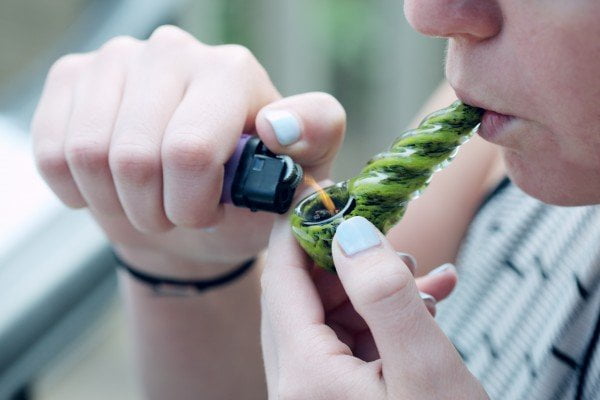WHAT/ WHEN IS MARIJUANA LEGAL IN CALIFORNIA?
The Adult Use of Marijuana Act (AUMA) is a testimony of California’s numerous reforms and integration in the health and security sectors. Also known as Proposition 64, the AUMA took effect on November 8th, 2016 following a statewide vote. Contrary to expectations, the majority of Californians voted for Proposition 64, at 57.13%, while the opposers of the Act only managed to garner 42.87%.
The new bill mainly addresses new licensure and regulatory procedures which mandates the activities in the Adult Use of Marijuana Act. Several high-end and notable associations endorsed the Act such as the California Cannabis Industry Association and California NORML. Consequently, other parties opposed the Act arguing that Proposition 64 only provided leeway for minors and parties to sell, use and distribute the drug. While the sale and consumption of marijuana remains illegal in a majority of states, many other states are sure to follow.
Marijuana Use and Activities
Proposition 64 covers all activities that deal with control, regulation, and taxation of adult use of marijuana. The bill allows adults over 21 years to possess, consume, cultivate or process no more than 28.5 grams of recreational marijuana. Retailers who intend to sell and distribute the drug are required to have a state license. Similarly, the act also allows adults to transport, purchase, give, or receive no more than 1 ounce or 28.5 grams of the drug without compensation and within state borders.
According to the new Act, adults are only allowed to smoke or ingest the drug within a private residence. However, if the adults are tenants, the Act gives the landlords the right to prohibit the use of the drug. Furthermore, the Act does not allow individuals to plant or cultivate more than six plants per residence (This is not the same as per person). However, local governments are allowed to place restrictions on cultivation but not prohibit it. With these new regulations, the residents of California are more than thrilled with how the state finally addressed Marijuana use.
Activities Prohibited by AUMA
The AUMA Act bars adults from involving minors in the use, sale, distribution, and possession of the drug. Anyone between 18 and 21 years old may not use marijuana unless strictly for medical use. You would also need a doctor’s recommendation for any “medical use” claim. Proposition 64 prohibits smoking, vaporizing, and ingesting marijuana products in public areas, similar to smoking, unless in state-licensed premises. Luckily, the act does not allow the use of cannabis while driving or riding a motor vehicle including a car, boat, or airplane (Read about: ARTICLE 2. Cannabis [11357 – 11362.9]).
Where and How Can I Obtain Legal Marijuana
The state officially began issuing licenses for marijuana retailers on January 1st, 2018. It is now legal to purchase an ounce of cannabis in any licensed stores or dispensaries. These dispensaries are categorized as either type “A” or type “M” for Adult and Medical respectively. Only persons over 21 years can purchase marijuana in type A dispensaries while medical users above 18 years can buy medical marijuana in type M dispensaries, although they require a physician’s recommendation. Even better, you can now have your marijuana delivered to you on your doorstep by either type A or type M delivery services (Read about: How Can I Obtain Cannabis Legally?). Moreover, the state allows one adult to give or receive not more than an ounce of the drug without compensation from another adult.
Penalties for Infringing on Adult Use Legislation
Court can decide to rule offenses as misdemeanors, infractions, or felonies. Juvenile offenders get a free pass from fines and jail sentences. Nonetheless, they are still required to attend mandatory drug education sessions, community service, and counseling. On the other hand, law enforcers can charge adult offenders as non-arrestable infractions (these often do not go on record), misdemeanors, or felonies. Misdemeanors warrant a max fine of $500 and/or 6 months in county jail. Felony charges only apply in aggravated circumstances such as violent, repeat, or environmental offenses. California NORML elaborates on infringements and their penalties.
1. Illegal Possession
Underage Possession-$100 infraction
18-21 possession- community service, counselling, drug education
Possession of more than 1 ounce by an adult-misdemeanor
Possession on school grounds- $250 infraction for first time offenders and 10 days jail time plus $500 for repeat offenders.
2. Illegal cultivation
Underage cultivation of 6 plants- $100 infraction
Adult illegal cultivation of more than 6 plants- Misdemeanor
Felony charges are applicable to 3rd time offenders, registered sex offenders, prior aggravated circumstances, knowing sale to minors, adults employing below 21 years for sale, transport, distribution and cultivation.
3. Possession with intent to sell
Illegal sale- misdemeanor
Felony charges are applicable to 3rd time offenders, registered sex offenders, prior aggravated circumstances, knowing sale to minors, adults employing below 21 years for transport, sale and cultivation.
4. Illegal sale, transportation, import and distribution
Misdemeanor
Felony enhancements are made for importing or exporting for sale more than 1 ounce or 4 grams of concentrates across state borders, 3rd time offenders, registered sex offenders, prior aggravated circumstances and knowing sale to minors.
5. Employing or providing to minors
Felony- 3 or more years prison sentence.
Marijuana users should be aware that the legislation is still new and may be subject to legal scrutiny by the court. If you find yourself in marijuana legal trouble, contact Don Hammond for a strategic defense consultation aimed at winning your case.
Traveling Internationally?











